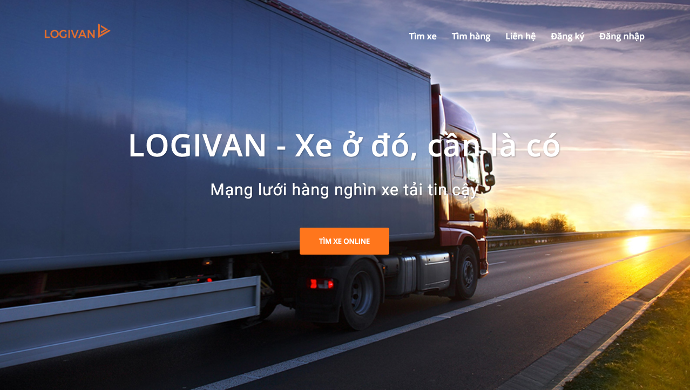There are a lot of costly inefficiencies in Vietnam’s fragmented logistics industry, and LOGIVAN aims to tackle that pain point

Vietnam’s logistics industry is racking in quite a bit of cash. In 2016, the country’s logistics firm collectively reaped US$8.47 billion in revenue — which is a 15.6 per cent growth from the previous year — owing to strong economic and foreign trade growth.
However, part of the surge in revenue was also due to the country’s underdeveloped transport infrastructure: inefficiencies in the road networks have caused the price of logistics services to escalate; in addition, the logistics industry is also fragmented with no central body to consolidate their services.
One Hanoi-based B2B startup, LOGIVAN, has set out to tackle this pain point. Founded by Linh Pham, a former Goldman Sachs technology analyst and Cambridge University graduate (majoring in entrepreneurship and psychology), the company offers a marketplace that connects freights with truckers directly.
Its solution won the admiration of former Sequoia venture partner Yinglan Tan, who made a US$600,000 investment into the startup via his new VC fund, Insignia Ventures Partners.
LOGIVAN will use the newly-raised capital to expand to Ho Chi Minh City and other major economic hubs in Vietnam, serving companies that have high transportation needs.
Also Read: Rosy outlook for Vietnam’s ecosystem as startup funding deals double to 92 last year
This is Pham’s second startup. Previously, She founded Snappetite, a Snapchast-esque platform for deals. This means that deals pop up for 30 seconds on the app before disappearing permanently.
Prior to building LOGIVAN, Pham worked at a manufacturing factory for a year before spotting the problem of empty truck returns, which she observed to be “extremely wasteful and environmentally damaging”.

LOGIVAN founder Linh Pham
“Logistics accounts for 25 per cent of Vietnam’s GDP. In Singapore, it is only 8 per cent,” says Pham. “The high cost is due to a number of factors: the market is fragmented and a lot of delivery trucks return with empty loads as a result. And because of the high empty load return rates, clients often have to pay double for the return leg. This is not only expensive but causes congestion and pollution as well,” she says.
LOGIVAN’s marketplace offers a central platform that tracks the location of the freights and truck. In doing so, it is able to optimise the trucks’ routes and reduce their empty load return rates.
To book a truck, clients access LOGIVAN’s marketplace on the web and indicate how many trucks they require and what kind of cargo they need to be delivered.
LOGIVAN only accepts first and middle-mile deliveries (for example, warehouses to distribution centres) and caters to only intercity deliveries. It is a strictly B2B service, delivering truckloads of heavy freight; so don’t call it up if you need to move house.
Once the client sends a request through and sees an estimate of the price, LOGIVAN will have someone contact them to arrange for a truck (or trucks). Clients can expect to book a truck as late as within the same day of delivery. For now, the platform, just three months in operation, does not feature an e-payments interface but the service is, however, currently free to use. Clients arrange payments with the logistic companies or truckers on their own.
With regards to its business model, Pham declined to comment.
In November last year, LOGIVAN won an Uber-backed startup competition in Vietnam, receiving sponsorship from the ride-hailing giant to go to Silicon Valley to be mentored by Uber CTO’s Thuan Pham.
Today, LOGIVAN currently works with a fleet of over 1,000 trucks. Together, they have transported over 3,300 tons of cargo.
LOGIVAN currently has a team of 11 people.
—
Image Credit: LOGIVAN
The post Exclusive: Yinglan Tan’s Insignia Ventures Partners invests US$600K into Vietnamese startup LOGIVAN appeared first on e27.